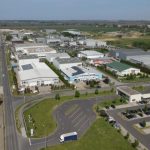The Debrecen transmission control unit now supports the movement of 2 million cars
The Debrecen transmission control unit now supports the movement of 2 million cars
Following the successful integration of Schaeffler and Vitesco Technologies on October 1, 2024, the Debrecen E-Mobility plant, which is part of the Schaeffler Group, has reached another milestone. The site, which specialises in the production of automotive electronics products, delivered its two millionth transmission control unit by the end of May, the company said in a statement on Monday. The product, they say, helps the passenger cars of one of the most traditional European car manufacturers move.
Since the start of production in Debrecen in 2021, the product has been produced in parallel in Germany. Sharing experiences between sites has proven to be a key factor in terms of success.
“The project is a perfect example of Schaeffler’s customer-centric approach. Continuous consultation and the successful cooperation between our two European factories has paid off, as a result of which two million cars are now on the roads worldwide, with the product manufactured in Debrecen. I congratulate the entire team on their great performance,” CEO of the Schaeffler Group’s E-Mobility division, Thomas Stierle emphasised.
As the most complex product in the 5-year history of the production plant operating in the Debrecen Southern Economic Zone, the production of this type of transmission control unit requires special knowledge and a large number of specialists.
“Thanks to the commitment and appropriate preparation of nearly 150 colleagues, our Debrecen automotive electronics factory was able to reach this important motion technology milestone, of which we are extremely proud,”Managing Director of Schaeffler’s Debrecen companies Péter Szabó said.
A transmission control unit passes through a total of 30 production machines before it reaches its final form, the entire process taking 5 hours.
The product, which supports a comfortable, dynamic and at the same time safe driving experience, showcases the best of 62 different technologies used in the E-Mobility factory in Debrecen: starting with surface mount technology (SMT), through pressing, laser welding, selective soldering, and up to the so-called plastic molding process. This latter advanced injection molding technology ensures that the product can operate reliably even under extreme conditions (from -40°C to +140°C).
“The special feature of the process is that the special plastic protecting the product does not soften when heated, but on the contrary, hardens when heated. With this solution, the electrical circuits and components of the product, which are directly integrated into the transmission, are protected from extreme environmental influences.
Thanks to the technology, we can produce much more resistant, higher quality products in Debrecen,” factory director Dr. József Nyéki emphasised.
Source:dehir.hu


